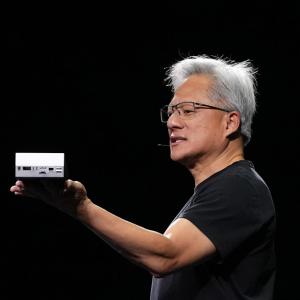Nvidia is set to restart sales of its H20 AI chip in China after getting approval from the U.S. government. This marks a significant change from previous restrictions aimed at limiting China’s AI development, particularly during the Trump administration.
In a blog post, Nvidia shared that U.S. officials will now support export licenses for the H20 chip, which could add billions to the company’s revenue. Before this news, Nvidia had to abandon some sales due to strict government controls. The H20 chip is less advanced, designed to fit within earlier U.S. regulations.
Nvidia’s stock bounced back, climbing around 4.5% in early trading. CEO Jensen Huang recently met with U.S. officials and also appeared on Chinese state television, confirming that shipments can proceed.
This shift signals a thaw in U.S.-China relations, following recent talks between officials from both nations. U.S. Secretary of State Marco Rubio hinted at a desire for higher-level meetings later this year, showcasing a mutual interest in easing trade tensions.
Just last month, the U.S. lifted some export controls to facilitate important technology trades. In exchange, China promised to allow more exports of rare-earth minerals essential for tech manufacturing. Despite previous U.S. claims that Nvidia’s chip sales were off the table, the situation has now changed dramatically.
Analysts see this approval as a victory not just for Nvidia but for other tech companies in China looking to build AI capabilities. According to Vey-Sern Ling of Union Bancaire Privee, this development is beneficial for both companies involved and the broader tech landscape in China.
Historically, the U.S. began restricting Nvidia’s sales to China in 2022 to prevent access to advanced technology that could aid the Chinese military. However, Nvidia has consistently worked on alternative products that meet regulatory requirements. The company previously introduced the H800 chip but faced restrictions on its sales in early 2023.
This back-and-forth demonstrates the importance of the Chinese market to Nvidia. They previously held a dominant position in AI hardware but have seen a decline in market share, from 95% to 50%, largely due to increased competition from companies like Huawei. Huang argues that the fear of Chinese military use of their technology is overstated, as reliance on U.S. technology could backfire.
Despite the recent positive developments, skepticism remains among U.S. policymakers. Concerns about chips being used inappropriately in China persist, and not all officials agree on the easing of restrictions.
Overall, if Nvidia successfully resumes exports, it may recover a significant portion of its previously at-risk revenue, which could greatly impact its standing in global AI technology. The company’s influence is evident as it participates in shaping the future of AI infrastructure post-ChatGPT.
For more insights into AI technology and its implications, you can visit Bloomberg for detailed reports.
Source link
President Donald Trump, China, Jensen Huang, Nvidia, Beijing, Bloomberg, Washington, US government officials


